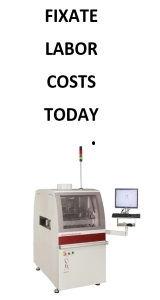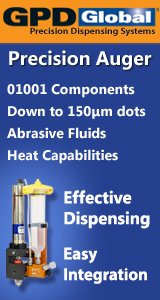Printed Circuit Board Assembly & PCB Design Forum
SMT electronics assembly manufacturing forum.
- SMTnet
- »
- Electronics Forum
- »
- Solderability Issues
Solderability Issues
Views: 9992
![]() Recently we have expereinced solder issues with our reflow p...
- Jul 20, 2010
by
Craig
Recently we have expereinced solder issues with our reflow p...
- Jul 20, 2010
by
Craig
![]()
![]()
![]() It is likely that the pads that will not solder have been co...
- Jul 22, 2010
by
dyoungquist
It is likely that the pads that will not solder have been co...
- Jul 22, 2010
by
dyoungquist
![]()
![]()
![]() by viewing your posting i came to know this is solder abili...
- Jul 23, 2010
by
JOSEPH PJ
by viewing your posting i came to know this is solder abili...
- Jul 23, 2010
by
JOSEPH PJ
![]()
![]()
![]() > by viewing your posting i came to know this is
> ...
- Jul 28, 2010
by
Craig
> by viewing your posting i came to know this is
> ...
- Jul 28, 2010
by
Craig
![]()
![]()
![]() I took a pad that did not have any solder flow (wetting issu...
- Jul 28, 2010
by
Craig
I took a pad that did not have any solder flow (wetting issu...
- Jul 28, 2010
by
Craig
![]()
![]()
![]() What surface finish are you using?
...
- Jul 28, 2010
by
brad
What surface finish are you using?
...
- Jul 28, 2010
by
brad
![]()
![]()
![]() I believe it is LF HASL. I will need to double check.
...
- Aug 02, 2010
by
Craig
I believe it is LF HASL. I will need to double check.
...
- Aug 02, 2010
by
Craig
![]()
![]()
![]() Craig,
If it is LF Hasl it sounds like it applied too thi...
- Aug 03, 2010
by
brad
Craig,
If it is LF Hasl it sounds like it applied too thi...
- Aug 03, 2010
by
brad
![]()
![]()
![]() IPC TM 650- Solderability of Metallic Surfaces
...
- Aug 09, 2010
by
Mark
IPC TM 650- Solderability of Metallic Surfaces
...
- Aug 09, 2010
by
Mark
![]()
![]()
![]() Types of PCB Finish
...
- Aug 09, 2010
by
Mark
Types of PCB Finish
...
- Aug 09, 2010
by
Mark
![]()
![]()
![]() Boards with the LF hasl finish applied too thin will genrall...
- Aug 13, 2010
by
brad
Boards with the LF hasl finish applied too thin will genrall...
- Aug 13, 2010
by
brad
![]()
- SMTnet
- »
- Electronics Forum
- »
- Solderability Issues







